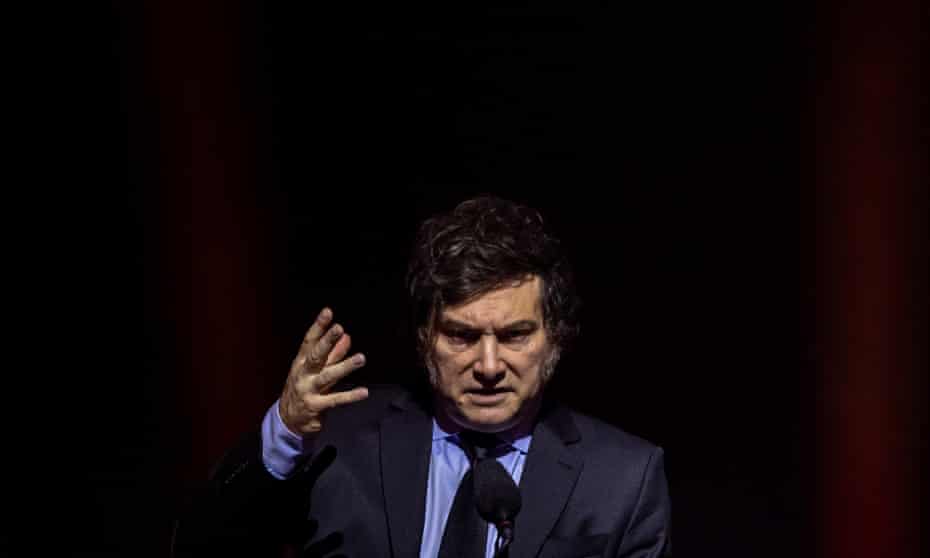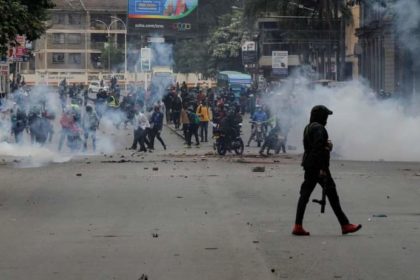By Adeyemi Adekunle
Argentina negotiators at the ongoing COP29, led by the climate-skeptic government of President Javier Milei, have withdrawn from discussions after only three days of participation. This move has raised serious concerns about the future of the Paris Agreement and the global response to climate change.*
More than 80 delegates from Argentina were present in Baku for two weeks of negotiations focused on climate finance and the energy transition. However, the far-right leader Milei—who has previously dismissed climate change as a “socialist lie”—has significantly undermined Argentina’s role in international climate discussions. Following his election last year, Milei even hinted at withdrawing Argentina from the Paris Agreement before reversing course amid international backlash.
The withdrawal from COP29 was confirmed by Ana Lamas, Argentina’s undersecretary for the environment and its most senior representative on climate after Milei dissolved the environment ministry. “It’s true. We have instructions from the ministry of foreign affairs to no longer participate. That’s all I can tell you,” Lamas stated. When pressed on whether Argentina plans to exit the Paris Agreement entirely, she indicated that the decision was solely related to the COP29 negotiations.
This abrupt withdrawal has raised alarms across the international community. Commentators express fears that Argentina’s departure from critical discussions signals a broader trend of instability within the climate accords. Former U.S. President Donald Trump, who has similarly pledged to withdraw from international climate agreements, held a conversation with Milei shortly before Argentina’s withdrawal, further fueling apprehensions about a potential domino effect among countries led by climate change skeptics.
As the summit unfolds in Azerbaijan, UN Secretary-General António Guterres has emphasized the need for unified action against climate change. He warned that a second departure of the U.S. from the Paris Agreement could “cripple” efforts to limit global warming to below 2°C above preindustrial levels. Given that Argentina is a major player within the Global South, its withdrawal raises significant questions about the future of collective climate commitments.
Carla Chavarria, a climate change management specialist, lamented the implications of Argentina’s decision, noting that it significantly weakens the country’s position in vital climate negotiations. “Argentina withdraws its delegation from COP29 in Baku, losing its voice in climate finance negotiations. At a key moment to secure resources against the climate crisis, the country is left out, weakening its future and its ability to adapt,” Chavarria noted on social media platform X.
The Citizens’ Association for Human Rights, an Argentinian group also present in Baku, expressed disappointment over Argentina’s reduced participation. “We participated in the negotiation group on the gender program in the climate change convention with [Argentina’s representative]. It is sad to see Argentina’s absence from the negotiations after having led on this issue in many of the previous COPs,” said a spokesperson, emphasizing the setback for gender-inclusive climate policies.
Milei’s administration has faced criticism for its aggressive rollbacks of environmental protections in favor of economic growth. Since taking office, the government has relaxed regulations safeguarding forests and glaciers, raising concerns among environmentalists and international observers alike. This approach not only alienates Argentina from global climate discussions but also puts the country’s ecological future at risk.
Julieta Zelicovich, a professor of international relations at the Universidad Nacional de Rosario in Argentina, emphasized the ramifications of Argentina’s withdrawal on international trade. “Without environmental commitments, any possibility of announcing an agreement at the G20 collapses. If the government wanted to move forward on trade agreements, this is a very wrong step,” Zelicovich stated, highlighting the interconnectedness of climate action and economic partnerships.
Oscar Soria, the Argentina director of the Common Initiative think tank, echoed similar sentiments, describing the withdrawal as a significant deviation from Argentina’s traditional climate policy. “This decision is purely ideological and goes against the best interest of the country, whose economy was severely impacted by the climate crisis,” Soria remarked. He characterized the move as part of a broader pattern of far-right politics, emphasizing that such stances undermine effective responses to pressing global issues.
The reaction from the international community to Argentina’s withdrawal has been severe, with many urging the South American nation to reconsider its position in light of global climate commitments. While Milei’s rhetoric plays well with his far-right base, it places Argentina’s future and its ability to navigate the complexities of climate financing at a considerable disadvantage.
With COP29 still in progress and nations around the world grappling with climate crises, Argentina’s hasty exit from critical discussions may not only hinder its own progress but could also embolden other nations to retreat from their climate commitments. As the summit continues, the world watches closely to see whether Argentina will ultimately recommit to international cooperation or continue down a path of isolationism in the fight against climate change.
Ultimately, the decisions made by leaders today will have lasting impacts on the planet’s future. As nations like Argentina retreat from vital negotiations, the clock continues to tick on the climate crisis, and the urgency for unified, decisive action has never been clearer. The global community remains hopeful that Argentina can reclaim its leadership role, recognizing that collaboration is essential in confronting one of the most pressing challenges of our time.




